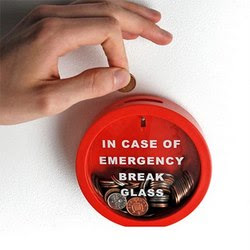I am proud to say that my niece came to me the other day to ask about saving for her two children. She has quite a nice little nest egg saved up for them and wants to save about $500 a month, which is $250 for each of them. We are going to have lunch this week to discuss this, but the discussion is going to be about not only the children's future, but hers as well. I received this question, which falls along the same lines I plan to discuss with my niece.
My oldest child is getting ready to go to college next year. I want to stop contributing money to my 401k to fund my child's education. Is this a good idea? -- Connie B.
No, it is not. Your retirement comes first. Like my niece discussed above, I think it is great you are planning on helping your children by paying for their education. However, I know that my niece has no retirement of any kind. Not a pension, not a 401k, no IRA, absolutely no retirement savings. So I am going to tell you the same thing I am going to tell her. There is nothing more important than having a six to eight month emergency fund and to continue to invest in your future retirement.
Again I think it is awesome you want to give your child the opportunity to better him/herself and start their adult life in the best possible way, but not at the threat of jeopardizing your own financial future. It can be disappointing to tell a child that you can't afford to pay for college or maybe ask them to pay a portion themselves. They might even have to take out a student loan. Now, if you can afford to fund your retirement and pay for their college tuition then there are no issues here. However, it is never a good idea to stop saving for retirement. For you to continue to save for another 10, 20, or 30 years is HUGE.
With company pensions and social security eventually a thing of the past, you will need to have retirement savings. If not, you will most likely end up being a financial burden to your kids. Unless you plan on working until the day you die, you need to save for retirement. Now, I am not telling anyone to kick their kids to the curb, but if you cannot invest for your future, you may have to look into other alternatives like a federal loan to help invest in theirs.
Did you enjoy reading this article? You can receive free full-text articles from Financial Elite by RSS in your email inbox daily by entering your email HERE. Your email will only be used for this daily subscription, and each email will include a link you may use to unsubscribe at any time. Also follow us on Twitter.











